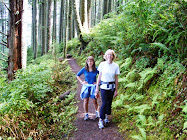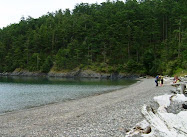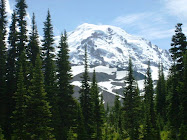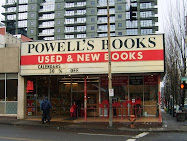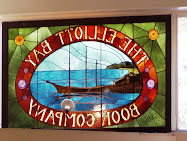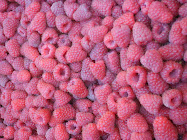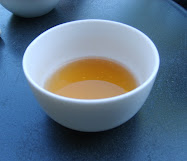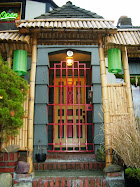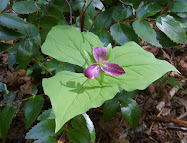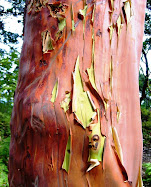
I completely agree with him.
When I was a teenager, I fell hard for Timberline Lodge and Mount Hood. Our relationship started during my occasional trips there as a girl, deepened when I spent a week rooming at the lodge for ski race camp, and cemented when I began and ended a week-long backpack trip on the TimberlineTrail at Timberline circumnavigating the mountain.
Richard and I aren't alone in how we feel about the lodge. This National Historic Landmark on Mount Hood is beloved by many for its massive free-standing stone fireplace, impressive collection of vintage 1930s artisan works, beautiful woodwork and majestic timber beams, and much more.
While Timberline Lodge has always felt grand and historic to me, this year she's celebrating her 75th anniversary as a glorious example of the Great Depression-era Worker's Progress Administration output. After some troubled early adulthood and middle-aged years, the lodge and much of its art has since been carefully restored and preserved.
Here at 6,000 feet on the southern flank of Mount Hood, historic Timberline Lodge offers a cozy refuge to sit and watch the world below, or a base for more active mountain adventures.
This afternoon I skied the wide open, mellow slopes off the Magic Mile chairlift above the lodge. At the top of the lift, wind gusts were hitting over 30 mph and bringing the wind chill to well below freezing, so we bundled up this April day in layers of fleece and down.
While the skiing here is not challenging, it's always exhilarating to ski down the slopes of this dormant volcano. In the summer the Palmer Lift is packed with racers and riders from around the world training in the off season.
This evening after a tasty dinner in the Ram's Head bar, we relax beside the massive stone fireplace and play old-fashioned Scrabble. Later we strike up a conversation with the couple on the sofa across from us. People are generally happy and friendly under the spell of this special place.
Part of the charms of Timberline are the many nooks and hidden places to discover, like the tiny Blue Ox Bar in the ground level (not open today). A typical room decorated in vintage 1930s-era style has been recreated on the ground level also, as a museum piece. While the old typewriters are long gone, the rooms are still cozy.
I never tire of coming to Timberline Lodge, either as a base for skiing or hiking, or to hang out and wander around. I'm just happy to help her celebrate 75 years of rustic magnificence.
What are your favorite memories of Timberline/Mount Hood? Have you ever climbed or circumnavigated the mountain? Thanks for sharing your comments below!
When You Go
Here's a link to a list of events going on this year at Timberline, which is about an hour drive east of Portland via Highway 26. While night skiiing is done for the season this year, the Magic Mile is still operating days, and of course the Palmer Chairlift will be open for the summer on May 29.
I
































